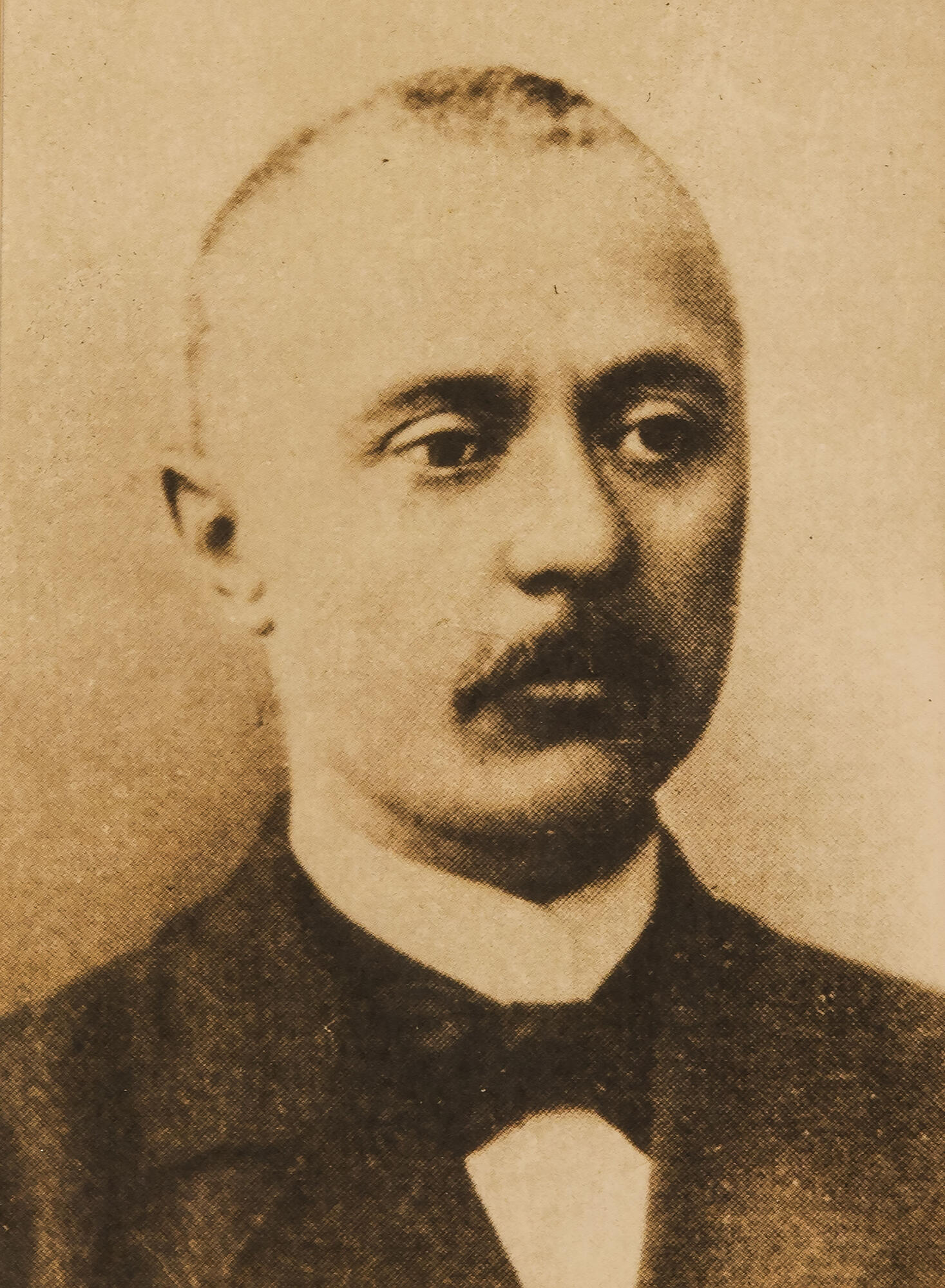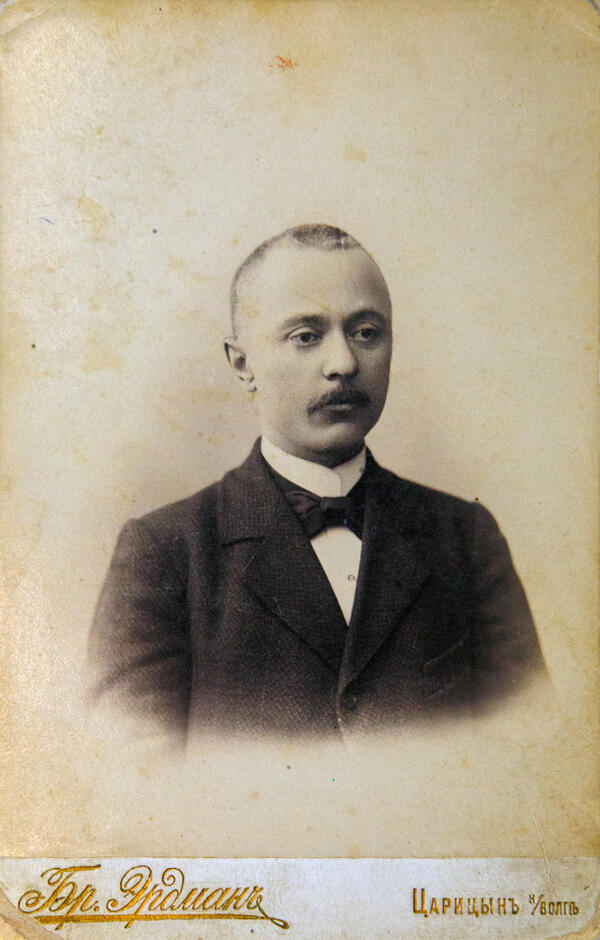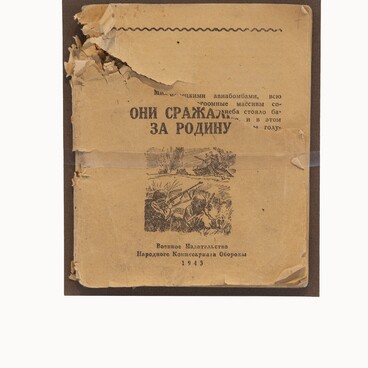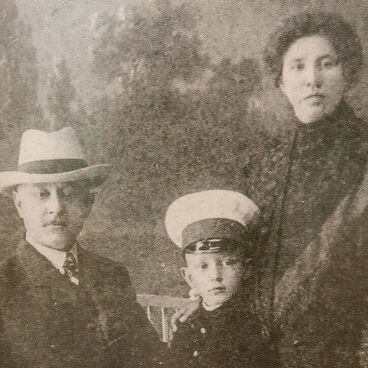This photo portrays Aleksandr Sholokhov, the father of the famous writer. He was born in 1865 in the Vyoshenskaya stanitsa of the Don Host Oblast. His parents were a local merchant Mikhail Sholokhov and Maria Mokhova, the daughter of a Boguchar merchant Vasily Mokhov.
After graduating from a church-parochial school, Aleksandr Sholokhov spent several years working at the enterprises he had inherited from his father. These included a manufactory shop and a wine cellar in the Kruzhilin hamlet. Later, he expanded the family business and opened his own fancy goods store and grain collection business under the brand name of the Paramonov merchants who were popular in the Don region during that period.
Having met Anastasia Kuznetsova, née Chernikova, Aleksandr took her into his home in the Kruzhilin hamlet as a housekeeper. In 1905, the couple had a son whom they named Mikhail. The parents of the future writer were only able to get married eight years later, after the death of Chernikova’s first husband. They got married in 1913 at the Pokrovskaya Church of the Kargin hamlet where they had moved shortly before. Aleksandr landed a job as a salesman at the Merchant House.
Before the Russian Civil War, the writer’s father was employed by the merchant Simonov in the Pleshakov hamlet of the Elanskaya stanitsa where he worked as the manager of a steam grist mill. Being a talented entrepreneur and an experienced manager, Aleksandr Sholokhov soon bought out the mill “with a millet huller and a smithy”. A millet huller is the name of a drum or a grindstone machine for hulling millet groats and producing grain.
In 1919, the Pleshakov hamlet was caught in the middle of war which forced the Sholokhovs to move to a more peaceful location in one of the nearby hamlets. Later, they returned to Kargin which had been renamed the Karginskaya stanitsa. Here, the writer’s father worked as the head of stock management office No. 32 and supervised the stock of agricultural supplies and other products.
Aleksandr Sholokhov’s contemporaries described him as a gentle and intelligent person who read a lot, subscribed to newspapers and magazines, and took an interest in fine literature, the history of Russia, economics, and agriculture. He paid a lot of attention to his son’s upbringing and helped Mikhail develop a love for reading and for the Russian language.
Before his death in 1925, Aleksandr Sholokhov had a chance to read his son’s short stories published in Moscow newspapers and magazines. He was buried at the Kargin stanitsa cemetery.
After graduating from a church-parochial school, Aleksandr Sholokhov spent several years working at the enterprises he had inherited from his father. These included a manufactory shop and a wine cellar in the Kruzhilin hamlet. Later, he expanded the family business and opened his own fancy goods store and grain collection business under the brand name of the Paramonov merchants who were popular in the Don region during that period.
Having met Anastasia Kuznetsova, née Chernikova, Aleksandr took her into his home in the Kruzhilin hamlet as a housekeeper. In 1905, the couple had a son whom they named Mikhail. The parents of the future writer were only able to get married eight years later, after the death of Chernikova’s first husband. They got married in 1913 at the Pokrovskaya Church of the Kargin hamlet where they had moved shortly before. Aleksandr landed a job as a salesman at the Merchant House.
Before the Russian Civil War, the writer’s father was employed by the merchant Simonov in the Pleshakov hamlet of the Elanskaya stanitsa where he worked as the manager of a steam grist mill. Being a talented entrepreneur and an experienced manager, Aleksandr Sholokhov soon bought out the mill “with a millet huller and a smithy”. A millet huller is the name of a drum or a grindstone machine for hulling millet groats and producing grain.
In 1919, the Pleshakov hamlet was caught in the middle of war which forced the Sholokhovs to move to a more peaceful location in one of the nearby hamlets. Later, they returned to Kargin which had been renamed the Karginskaya stanitsa. Here, the writer’s father worked as the head of stock management office No. 32 and supervised the stock of agricultural supplies and other products.
Aleksandr Sholokhov’s contemporaries described him as a gentle and intelligent person who read a lot, subscribed to newspapers and magazines, and took an interest in fine literature, the history of Russia, economics, and agriculture. He paid a lot of attention to his son’s upbringing and helped Mikhail develop a love for reading and for the Russian language.
Before his death in 1925, Aleksandr Sholokhov had a chance to read his son’s short stories published in Moscow newspapers and magazines. He was buried at the Kargin stanitsa cemetery.



